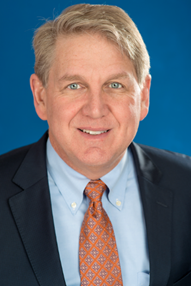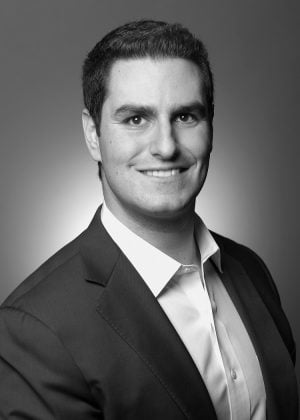 “Be not the first by which the new is tried, nor the last to lay the old aside” — Alexander Pope
“Be not the first by which the new is tried, nor the last to lay the old aside” — Alexander Pope
Meet Bill Henderson — Chicago law school grad, 7th Circuit Clerk, and leading academic on the diffusion of innovation in legal (or lack thereof!).
Last week, Bill honored my colleagues Paul Stroka, Rebecca Thorkildsen and me, by asking us to teach his class at Northwestern Law about our experience as agents pushing for the diffusion of innovation in the legal industry. In turn, I wanted to share with our alt.legal audience the great work Bill is doing.
In class, Bill asked us to share with law students (and others) how we convince lawyers to try new stuff (it does happen, I swear). Bill wrote a great summary of the class (and I agree with Bill that Rebecca Thorkildsen is “the single most knowledgeable person on legal technology” out there). But in the end, it was I who was convinced… convinced that Bill has thought more deeply about legal innovation than anyone out there.
Bill is a prolific author and lecturer on the legal market. His industry accolades include ABA Journal Legal Rebel (2009), National Law Journal 100 most influential lawyers in America (2013), and National Jurist most influential person in legal education (2014 and 2015). Bill is also a Fellow of the College of Law Practice Management.
Whereas I work at an alternative legal services provider, and write about other legal innovators, Bill is finding examples of what is already working and sharing them with readers. Toward this end, Bill is the editor of the exciting website legalevolution.org, which uses applied research to solve a practical problem: lagging legal productivity. IMHO, this site is a must read (but do not let your productivity lag before finishing the column!).
The Legal Innovation Paradox Revisited
But Bill is not just an academic, he also sat in my seat for six years. Working at a company called Lawyer Metrics (now owned by AccessLex Institute), he was part of a team that built and sold data analytics products and services to lawyers.
And he understands the Legal Innovation Paradox we described in our last two columns:
I have seen numerous legal start-ups struggle and fail because the founders were pitching efficiency to law firms. Although clients complain about high legal bills, the law firm that makes a large capital investment in efficiency has a very difficult time capturing a reasonable portion of the value created.
More importantly, Bill lucidly explains why lagging legal productivity is such a problem. Because, “solving legal problems is becoming, in a relative sense, more expensive over time.” This stands in sharp contrast to many of the goods we consume (think food and technology), which have come down in price in recent years (on a relative basis). Bill says it best in his opening post:
In the individual client market, more citizens go without access to legal services. In the corporate market, clients cope with budget constraints by demanding fee discounts from law firms, which undercuts the incentive to create better systems and process.
Bill teaches legal innovation with the help of the Rogers Diffusion Curve:

Lawyers love to think of themselves as coldly rational (hey, 1/4 of our law school entrance exams are logic games totally irrelevant to real life). But the Rogers diffusion curve shows that only 1/6 of adopters purposefully integrate new innovations.
This leads to some awesome conclusions:
For roughly 5/6th of the legal market, the adoption of new innovations is more a social process of imitation than a mental process of analytical reasoning. This means that the vast majority of lawyers (or law students or law professors) won’t change until they see others successfully change first. Adoption decisions are more than rational, explicitly stated risk calculations; they are also strongly influenced by the often unstated desire to fit in or, alternatively, the fear of being left behind.
We all know it. Lawyers don’t try (hard) to get ahead, but are terrified of falling behind. Makes lawyers sound more like the cliques in the movie “Mean Girls” than the supremely rational beings they believe they are.
Enjoy our Q&A below:
Joe Borstein: Bill, you study the difficulty of innovation in legal, but do you see any silver lining? Are the cycles of innovation getting faster?
Bill Henderson: The cycles of innovation are getting faster because the communication channels for disseminating examples of innovations are becoming greater in number and more prolific. Above the Law’s regular coverage of legaltech, NewLaw, and alt-law, etc., is raising awareness. Also, we see ALM, Thomson Reuters, Bloomberg, the ABA Journal and other outlets expanding their innovation coverage.
More and bigger “communication channels” (a diffusion theory term of art) increases “awareness knowledge” of innovation. Innovators and early adopters then have an opportunity to consider adoption. If and when they obtain a significant benefit, the rest of the “social system” — and law is definitely a social system with numerous subsystems — adopts the innovation, as you note above, primarily through a process of imitation. That, in a nutshell, is diffusion theory.
However, a careful application of diffusion theory to the legal industry reveals the likelihood of slow diffusion of innovations. Features that slow down adoption include the partnership decision-making model (e.g., a committee meeting of partners to spend $12,000 for cloud-based tech), the inability of lawyers to co-venture with other professions (Rule 5.4), a generally conservative ethos, and “opinion leaders” (elite NYC firms, the T14 law schools) that are seldom early adopters. Change is still going to occur, but more water has to accumulate behind the dam to create the requisite pressure and payoffs.
Organizations that understand diffusion theory can use it to get ahead of the competition — by creating better service and product offerings, and learning how to sell it. That is good for the clients and the overall industry.
JB: For our readers out there, which schools are in the forefront of teaching legal innovation?
BH: Suffolk, Michigan State, Vermont, Miami and Chicago-Kent all have some terrific programs (along with Indiana Law), though we also see elite schools like Harvard, Northwestern and Georgetown making significant inroads. Likewise, some of the Canadian law schools, such as Toronto, Calgary, and Osgoode Hall are doing interesting things.
Note that in all these cases, there is an “innovator” law faculty member who does the initial lift. Dan Katz, Andy Perlman, Tanina Rostain, Dan Linna, Michele DeStefano, Oliver Goodenough, and others fit this mold. Also, we definitely have some early adopter deans like Trish White (Miami), Dan Rodriguez (Northwestern), and Ian Holloway (Calgary). Now Perlman is the dean at Suffolk and the Chair of the ABA Center on Innovation. So things are changing.
My apologies for the many innovators and early adopters I am leaving out.
JB: What excites law students the most about legal innovation?
BH: Richard Susskind has a great observation on this topic, which has been my experience as well. The most conservative audience in all of law tends to be law students, largely because their views of law are shaped mostly, or least disproportionately, by pop culture. In my first-year Legal Profession class, I walk students through the data, puncturing their views of what it means to be lawyer.
What is different about law students is that the disillusionment only lasts for a day or two, then they bounce back. Mid- and senior-level lawyers are much less resilient because more of their careers and identity are tied up with the survival of traditional law practice. Many of my students are excited by this new legal ecosystem because it creates opportunities for doing both good and well. Also, this is a generation looking for work-life balance, and legaltech combined with new business models arguably put that within reach. The challenge for all of legal education is that these new opportunities are not packaged up and institutionalized like the old on-campus interview (OCI) process. But that will happen over the next half generation.
A new and more accurate narrative on the legal sector is slowly being written. Biglaw will definitely remain an important cast member, but the days of Biglaw as the center of the legal universe are over.
JB: Final question, do you think the time has come for a legal incarnation of Jeff Bezos? In other words, will we see in the next ten years our first legal innovation billionaire? Why/Why not?
BH: That is a really good question. I am skeptical about billionaires from legal businesses because legal is a niche market. At least in the US, it is hard to imagine a legal-oriented business that touches 50 percent or more of ordinary consumers (think Amazon, Walmart, or Apple). The legal ethics rules are keeping the legal consumer market from rationalizing. To the extent someone gets billionaire-level rich, look for the Y Combinator crowd to figure it out. They see the water building behind the dam and the pressure/opportunities that creates.
Setting aside Bezo-like wealth, there are many people in the lawyer-to-lawyer and lawyer-to-consumer space who have already accumulated significantly more personal wealth than the typical Am Law 100 equity partner. And some got there before they were old enough to become partner. They are all innovators and early adopters. That sector is going to grow.
 Joe Borstein is a Global Director withThomson Reuters Legal Managed Services, delivering Pangea3 award-winning legal outsourcing services and employing over 1800 full-time legal, compliance, and technology professionals across the globe. He and his co-author Ed Sohn each spent over half a decade as associates in BigLaw and were classmates at Penn Law. (The views expressed in their columns are their own.)
Joe Borstein is a Global Director withThomson Reuters Legal Managed Services, delivering Pangea3 award-winning legal outsourcing services and employing over 1800 full-time legal, compliance, and technology professionals across the globe. He and his co-author Ed Sohn each spent over half a decade as associates in BigLaw and were classmates at Penn Law. (The views expressed in their columns are their own.)
Joe manages a global team dedicated to counseling law firm and corporate clients on how to best leverage Thomson Reuters legal professionals to improve legal results, cut costs, raise profits, and have a social life. He is a frequent speaker on global trends in the legal industry and, specifically, how law firms are leveraging those trends to become more profitable. If you are interested in entrepreneurship and the delivery of legal services, please reach out to Joe directly atjoe.borstein@tr.com.
http://feedproxy.google.com/~r/abovethelaw/~3/XOvh4U56P4w/
 FIRST, LET’S START WITH A BONUS STORY: Apparently if your firm stupidly followed to $180K, there’s a chance it’ll take that out of your bonuses. Here’s the miserly quote.
FIRST, LET’S START WITH A BONUS STORY: Apparently if your firm stupidly followed to $180K, there’s a chance it’ll take that out of your bonuses. Here’s the miserly quote. Studies have shown in the past that LinkedIn is a very
Studies have shown in the past that LinkedIn is a very 

 The holiday season is nearly upon us, and it’s never too early to start making plans. We hope Above the Law will be the first ones on your list when you schedule your party destination plans! This year’s fête is at
The holiday season is nearly upon us, and it’s never too early to start making plans. We hope Above the Law will be the first ones on your list when you schedule your party destination plans! This year’s fête is at 
 I spent last week in my former hometown of Milwaukee, Wisconsin at the Wisconsin Law & Technology Conference. An attendee at one of my panel discussions asked me how we conducted reviews. She is a government attorney and their resources to review documents provided by opposing parties is limited. That’s a problem that everyone faces, not just government attorneys.
I spent last week in my former hometown of Milwaukee, Wisconsin at the Wisconsin Law & Technology Conference. An attendee at one of my panel discussions asked me how we conducted reviews. She is a government attorney and their resources to review documents provided by opposing parties is limited. That’s a problem that everyone faces, not just government attorneys. Kelly Twigger gave up the golden handcuffs of her Biglaw partnership to start
Kelly Twigger gave up the golden handcuffs of her Biglaw partnership to start  Sure, It’s Better Than Last Year: If you use interesting math, the California bar passage rate is up, but
Sure, It’s Better Than Last Year: If you use interesting math, the California bar passage rate is up, but  * The Federalist Society is proposing a court-packing scheme because that’s what the Founders would have, you know, never wanted.
* The Federalist Society is proposing a court-packing scheme because that’s what the Founders would have, you know, never wanted.  It’s Nearly Bonus Season: What kind of a payday do you think Biglaw will leave in the stockings of high-billing associates this year? Cast
It’s Nearly Bonus Season: What kind of a payday do you think Biglaw will leave in the stockings of high-billing associates this year? Cast 
 Biglaw Lawyers Are Charging Lots Of Money: So they always
Biglaw Lawyers Are Charging Lots Of Money: So they always Can anyone tell me what happened on November 3rd ? No, it wasn’t my birthday, was it yours?
Can anyone tell me what happened on November 3rd ? No, it wasn’t my birthday, was it yours?

 “But—look around, look around, the Revolution’s happening in New York.” —
“But—look around, look around, the Revolution’s happening in New York.” — 
 “Be not the first by which the new is tried, nor the last to lay the old aside” — Alexander Pope
“Be not the first by which the new is tried, nor the last to lay the old aside” — Alexander Pope
 Joe Borstein is a Global Director with
Joe Borstein is a Global Director with